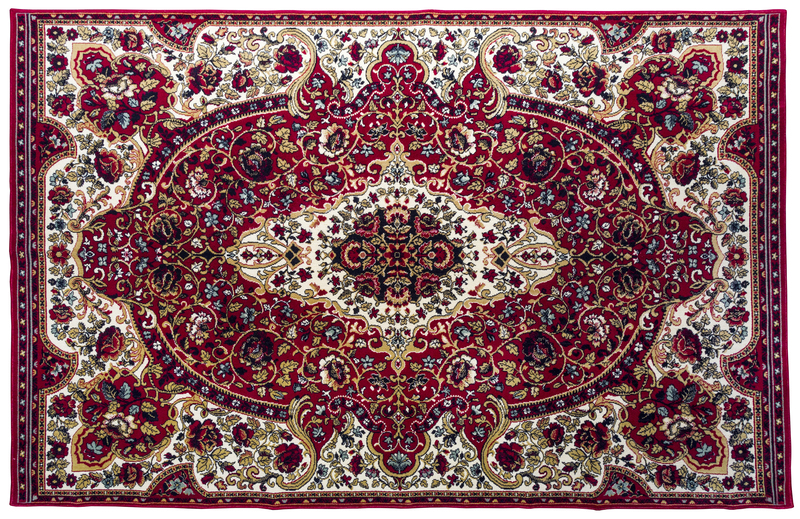Jewelry Cleaning: Protecting Your Investment
Posted on 18/08/2025
Jewelry Cleaning: Protecting Your Investment
Jewelry is more than just a beautiful accessory--it's a reflection of personal style, often carries sentimental value, and can represent a significant financial investment. Regular jewelry cleaning is essential to ensure your precious pieces maintain their sparkle, luster, and integrity. In this comprehensive guide, we'll explore the importance of jewelry maintenance, diverse cleaning methods for different materials and gemstones, tips for regular upkeep, and professional cleaning insights--all to help you protect your treasured investment.

Why Is Jewelry Cleaning Important?
Your favorite ring or necklace may look dazzling, but over time, daily wear exposes jewelry to natural oils, cosmetics, dust, and chemicals. Even environmental factors such as humidity and pollution can harm your valuable pieces. Regular jewelry cleaning brings more benefits than just enhancing appearance:
- Preserves Value: Well-maintained jewelry retains its monetary and sentimental value.
- Prevents Damage: Dirt and buildup may scratch surfaces or loosen prongs, risking loss of stones.
- Supports Health: Clean jewelry reduces the risk of skin irritation and infections caused by trapped grime.
- Enhances Shine: Brilliance and sparkle are restored with proper, careful cleaning.
Jewelry: An Emotional and Financial Commitment
Most jewelry pieces carry cherished memories, from engagement rings to family heirlooms. For collectors and investors, jewelry can also serve as a significant asset. Maintaining its condition is not just about appearance--it's about protecting your investment long-term.
Understanding Different Jewelry Materials
Before you embark on any cleaning regime, it's crucial to understand what materials comprise your jewelry. Gold, silver, platinum, and an array of gemstones and organic materials all require unique cleaning considerations.
- Gold: Durable but prone to scratching. Alloy content (such as copper) can tarnish over time.
- Silver: Tarnishes easily and may require frequent polishing.
- Platinum: Highly durable and more resistant to tarnish, but still benefits from cleaning.
- Gemstones: Porous stones (like opals, pearls, and turquoise) demand extreme care. Harder gems like diamonds and sapphires tolerate stronger cleaning methods.
- Organic Materials: Pearls, coral, and amber are delicate and respond poorly to chemicals and water immersion.
Common Threats to Jewelry
Everyday routines can compromise your jewelry's brilliance:
- Cosmetics and Lotions: Residues accumulate quickly, muting shine and sometimes degrading metal or stones.
- Household Chemicals: Bleach, ammonia, and even chlorine in swimming pools can cause irreparable harm.
- Physical Activities: Working out, gardening, or heavy lifting may induce scratches or cause bends in soft metals.
How to Clean Jewelry at Home Safely
Caring for your jewelry doesn't always require professional intervention. Regular, gentle cleaning at home preserves your collection's beauty and wards off grime buildup. Here are some jewelry cleaning methods and tips for various materials:
Cleaning Gold and Platinum
- Soak: Use a bowl of warm water mixed with a few drops of mild dish soap. Let your gold or platinum jewelry soak for 15 to 30 minutes.
- Brush: Use a soft-bristle toothbrush to remove dirt and residue, paying attention to crevices.
- Rinse: Thoroughly rinse under lukewarm running water, ensuring all soap is removed.
- Dry: Pat dry with a lint-free, soft cloth.
Cleaning Silver Jewelry
- Polishing Cloth: Invest in a special silver polishing cloth, as this is the safest, most effective way to remove tarnish.
- Baking Soda Paste: Make a paste of three parts baking soda to one part water. Gently rub onto silver using a soft cloth, rinse well, and buff dry.
Tip: Avoid paper towels, as they can scratch soft metals like silver or gold.
Cleaning Gemstone Jewelry
- Diamonds, Sapphires, and Rubies: Soak in warm, soapy water and gently brush. Avoid harsh chemicals.
- Porous Stones: For opals, turquoise, and emeralds, avoid soaking. Wipe gently with a damp cloth and dry immediately.
- Pearls: Never immerse in water. Wipe with a soft, slightly dampened cotton cloth. Pearls absorb water, which can weaken their thread and spoil the luster.
Professional Jewelry Cleaning
While regular at-home care is crucial, nothing matches the results of a professional jewelry cleaning service. Reputable jewelers use ultrasonic cleaners, steam cleaners, and expert techniques tailored for each material and stone. Why consider professional cleaning?
- Comprehensive Check-Up: Jewelers examine clasps, prongs, and settings for wear or damage, reducing the risk of losing stones.
- Deep Cleaning: Specialized equipment removes contaminants you cannot access at home.
- Expert Polishing: Jewelers safely polish precious metals, restoring the factory-original shine.
- Restringing Services: Pearl and bead jewelry can be restrung to ensure integrity and aesthetic appeal.
Recommendation: Take your frequently worn items for professional cleaning and inspection at least once or twice a year.
Best Practices for Everyday Jewelry Care
Beyond cleaning, jewelry care also includes proactive maintenance and safe storage. Integrate these practices into your daily routine:
- Remove Jewelry When Necessary: Take off rings, bracelets, and necklaces before cleaning, swimming, or engaging in sports.
- Apply Cosmetics First: Lotions, perfumes, and hairspray can diminish shine and weaken stones--apply them before putting on jewelry.
- Store Properly: Use soft pouches, jewelry boxes with separate compartments, or anti-tarnish strips for silver pieces. Avoid piling items together, as this can cause scratches.
- Inspect Regularly: Check prongs and clasps periodically for signs of damage or loosening, addressing issues promptly.
Common Mistakes in Jewelry Cleaning
Mistakes in care and cleaning can turn a valued investment into a casualty. Avoid these frequent errors:
- Harsh Chemicals: Bleach, ammonia, and acetone are too aggressive for most jewelry.
- Ultrasonic Cleaners for All: While effective for hard stones, ultrasonic cleaning can shatter softer or included gemstones.
- Over-Polishing: Excessive polishing can thin gold or silver, especially antique pieces with detailed engravings.
- Using Toothpaste: Though often recommended, toothpaste is abrasive and can scratch metals and soft stones.
Long-Term Maintenance: Tips for Protecting Your Jewelry Investment
Maintaining the beauty and value of your jewelry requires a well-planned approach. Here's a thorough checklist for safeguarding your investment:
- Set a Cleaning Routine: Schedule monthly light cleanings and biannual professional evaluations for frequently worn pieces.
- Insure Your Jewelry: Especially for high-value or sentimental items, consider appraising and insuring your collection to protect against theft, loss, or damage.
- Avoid Extreme Temperatures: Abrupt changes in temperature can crack gemstones or compromise metal settings.
- Maintain Documentation: Keep receipts, appraisals, and care instructions for each significant piece for insurance purposes and resale value.
Special Considerations for Vintage and Antique Jewelry
Older pieces, whether inherited or collected, require delicate handling. Many contain unique or less durable materials, non-standard settings, and more intricate designs. Always consult a specialist before cleaning antique jewelry--a single error can diminish both its value and historical significance.
Eco-Friendly and Safe Jewelry Cleaning
In recent years, the demand for eco-friendly jewelry maintenance products has surged. Many commercially available jewelry cleaners use mild plant-based ingredients, reducing the use of harsh chemicals in your home. Baking soda, white vinegar, and gentle soap are all effective and green cleaning agents--remember to use them cautiously and tailor methods to your specific jewelry item.
Quick At-Home Cleaning Recipes
- Baking Soda & Water Paste: A classic remedy for silver tarnish. Make a soft paste, apply gently, and rinse.
- Warm Water & Dish Soap: Safe for most gold and gemstone jewelry. Avoid soaking pearls or opals.
- White Vinegar for Gold: Submerge gold jewelry in white vinegar for a few minutes, rinse, and polish with a soft cloth.

Protecting Your Jewelry Investment: The Final Word
Your jewelry is a unique blend of monetary value and cherished memories--a lasting investment deserving attentive care. Establishing a regular cleaning and maintenance routine, paired with professional inspections, ensures every piece remains a timeless treasure. Remember, the longevity of your jewelry depends on both the quality of your initial investment and your commitment to ongoing care.
Maintaining jewelry's allure and strength doesn't have to be daunting. With the right practices and a mindful approach, your collection will shine for generations. Treat your jewelry with the respect it deserves, and it will continue to illuminate your life for decades to come.
Useful Resources for Jewelry Cleaning and Care
- Professional Jewelers: Seek the advice of certified jewelers for complex cleaning or restoration.
- Insurance Agents: Ensure your investment is protected with up-to-date appraisals.
- Gemological Institutes: Refer to guidelines from reputable organizations (such as the GIA) for cleaning specific gemstones.
Frequently Asked Questions about Jewelry Cleaning
-
How often should I clean my jewelry at home?
Clean your frequently worn pieces once a month at home and schedule a professional cleaning every six months to a year. -
Can all jewelry be cleaned in the same way?
No. Materials and stones vary greatly. Always research or consult with a specialist before cleaning to avoid damage. -
Is ultrasonic cleaning safe for all jewelry?
Not all stones are suitable for ultrasonic cleaning. Avoid ultrasonic machines for porous or fracture-filled stones and antique jewelry. -
How do I store jewelry to keep it clean?
Store each piece in a separate, soft-lined box or pouch, away from sunlight and humidity. Use anti-tarnish cloths or strips for silver.
In summary, jewelry cleaning is essential to protect your investment, preserve sentimental value, and ensure your treasured pieces continue to shine. Handle your jewelry with the care it deserves, and it will reward you with everlasting beauty.





